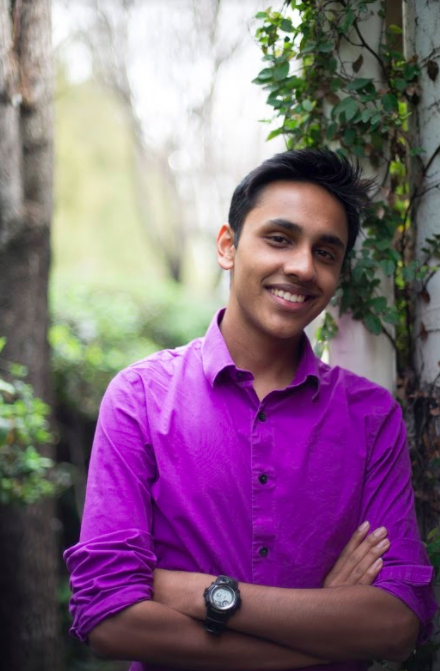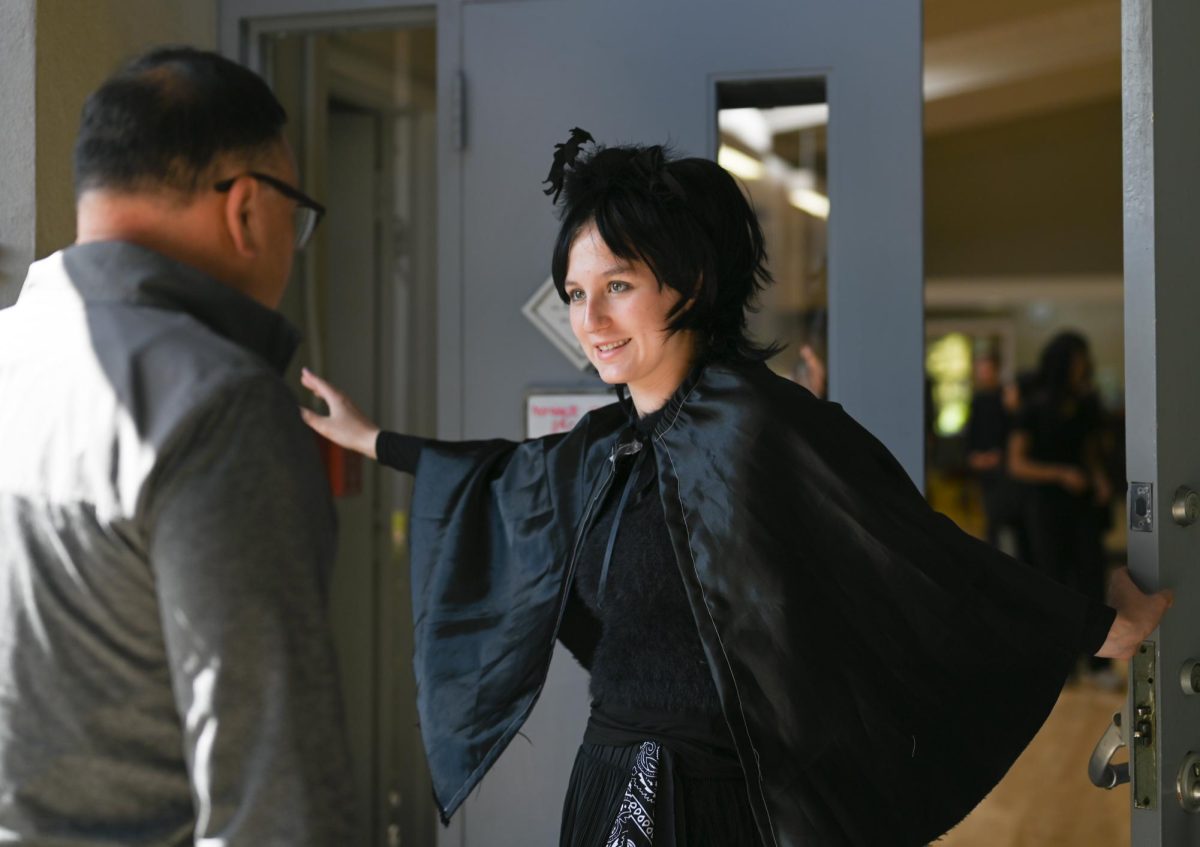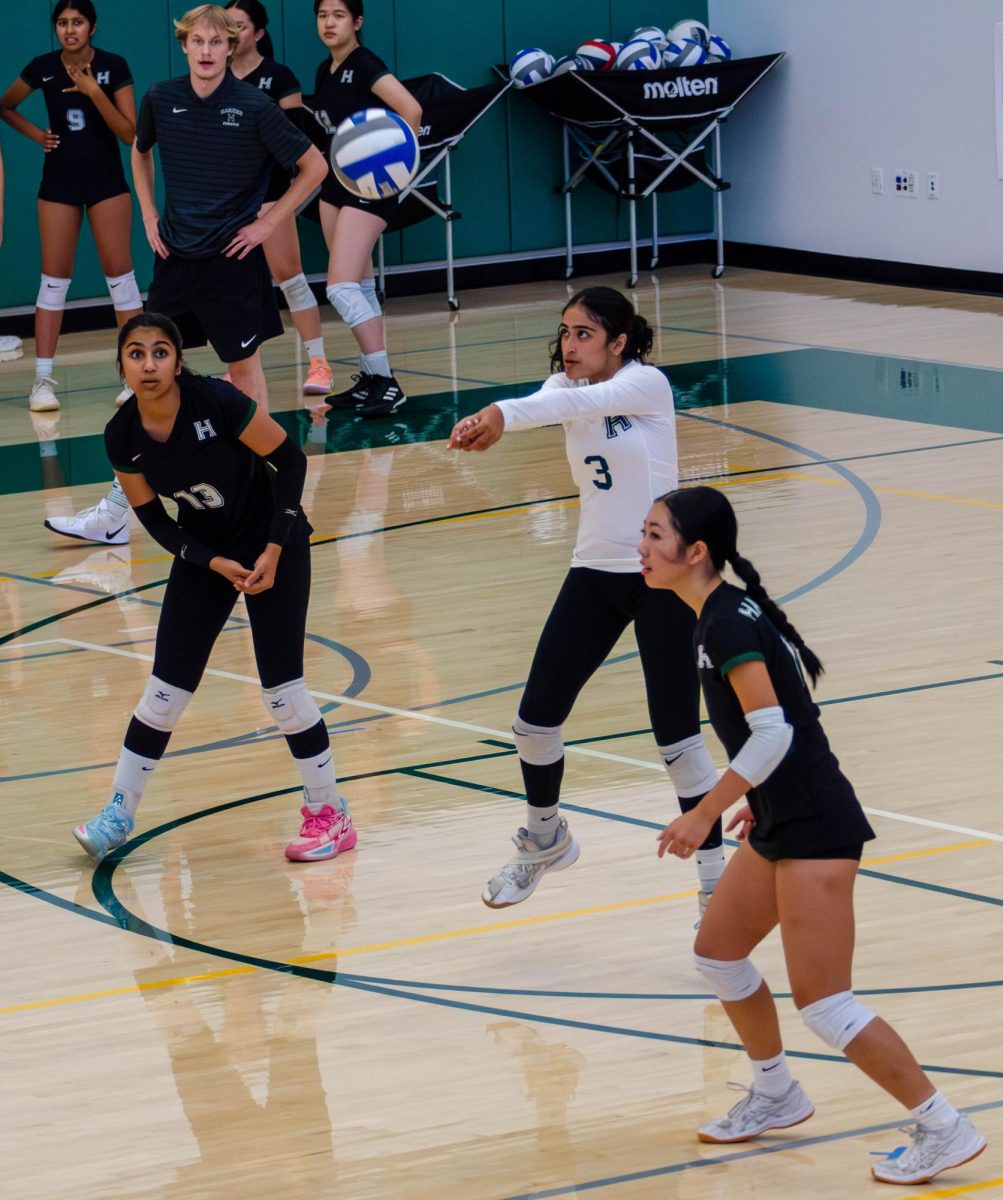Humans of Harker: Arjun Subramaniam pursues Indian classical singing and research
“Every evening when I go to the corner of my living room and sing, I kind of feel an unexplainable joy. It’s something where I’m trying to find the depth and soul of the music and express it in my own way, in a way that really can’t be said in numbers or words. It’s utterly irrational, but I think that if the world were rational, we probably wouldn’t need music, because it expresses something that nothing else can convey,” Arjun Subramaniam (12) said.
March 20, 2017
Arjun Subramaniam (12) sings, but not in the traditional sense — or perhaps more precisely, not in the untraditional sense. Since the age of six, Arjun has practiced Indian classical singing.
Indian classical singing is notable for its vibrant use of improvisation. Every song is made unique by the singer’s artistic vision.
“It’s been a very long journey — [I‘ve gone] to India every summer since the age of ten and I’ve been learning with my guru and performing there,” Arjun said.
Through his singing, Arjun has found a world of inscrutable, ineffable emotion.
“Every evening when I go to the corner of my living room and sing, I kind of feel an unexplainable joy,” Arjun said. “It’s something where I’m trying to find the depth and soul of the music and express it in my own way, in a way that really can’t be said in numbers or words. It’s utterly irrational, but I think that if the world were rational, we probably wouldn’t need music, because it expresses something that nothing else can convey.”
Akhil Arun (11) who has known Arjun since seventh grade, is grateful for Arjun’s senior advice in both singing and academics.
“In general, Arjun’s just a really good mentor to me,” Akhil said. “If ever I have any questions or something, he’s just really good about giving advice and he’s really knowledgeable about a lot of things.”
Arjun also pursues an interest in science research. Arjun first became interested in research in wanting to help his grandfather, who was diagnosed with Parkinson’s disease when Arjun was ten.
“[My research]’s been a lot about my grandfather — seeing him struggle has inspired me to take on these challenges, however daunting they are,” Arjun said. “I’m very motivated by solving problems that impact people’s lives. Whatever my research ends up with, I hope that I have an impact, that I can say ‘this person’s life has been improved because I’ve been able to solve this problem.’”
Altogether, Arjun believes that his interests in both music and research stem from the same underlying ideas.
“The thing about research and music is there’s no right answer,” Arjun said. “Even so, I keep asking questions. When I’m in the lab, I’m constantly looking at a problem from different angles — how can I change and improve my approach. And singing Indian Classical Music every evening — how can I make this pattern better, or how can I explore this new musical idea. When I search for an answer I never end up where I expect to, but it’s incredible how much I learn along the way.”


















![“[Building nerf blasters] became this outlet of creativity for me that hasn't been matched by anything else. The process [of] making a build complete to your desire is such a painstakingly difficult process, but I've had to learn from [the skills needed from] soldering to proper painting. There's so many different options for everything, if you think about it, it exists. The best part is [that] if it doesn't exist, you can build it yourself," Ishaan Parate said.](https://harkeraquila.com/wp-content/uploads/2022/08/DSC_8149-900x604.jpg)




![“When I came into high school, I was ready to be a follower. But DECA was a game changer for me. It helped me overcome my fear of public speaking, and it's played such a major role in who I've become today. To be able to successfully lead a chapter of 150 students, an officer team and be one of the upperclassmen I once really admired is something I'm [really] proud of,” Anvitha Tummala ('21) said.](https://harkeraquila.com/wp-content/uploads/2021/07/Screen-Shot-2021-07-25-at-9.50.05-AM-900x594.png)







![“I think getting up in the morning and having a sense of purpose [is exciting]. I think without a certain amount of drive, life is kind of obsolete and mundane, and I think having that every single day is what makes each day unique and kind of makes life exciting,” Neymika Jain (12) said.](https://harkeraquila.com/wp-content/uploads/2017/06/Screen-Shot-2017-06-03-at-4.54.16-PM.png)








![“My slogan is ‘slow feet, don’t eat, and I’m hungry.’ You need to run fast to get where you are–you aren't going to get those championships if you aren't fast,” Angel Cervantes (12) said. “I want to do well in school on my tests and in track and win championships for my team. I live by that, [and] I can do that anywhere: in the classroom or on the field.”](https://harkeraquila.com/wp-content/uploads/2018/06/DSC5146-900x601.jpg)
![“[Volleyball has] taught me how to fall correctly, and another thing it taught is that you don’t have to be the best at something to be good at it. If you just hit the ball in a smart way, then it still scores points and you’re good at it. You could be a background player and still make a much bigger impact on the team than you would think,” Anya Gert (’20) said.](https://harkeraquila.com/wp-content/uploads/2020/06/AnnaGert_JinTuan_HoHPhotoEdited-600x900.jpeg)

![“I'm not nearly there yet, but [my confidence has] definitely been getting better since I was pretty shy and timid coming into Harker my freshman year. I know that there's a lot of people that are really confident in what they do, and I really admire them. Everyone's so driven and that has really pushed me to kind of try to find my own place in high school and be more confident,” Alyssa Huang (’20) said.](https://harkeraquila.com/wp-content/uploads/2020/06/AlyssaHuang_EmilyChen_HoHPhoto-900x749.jpeg)










